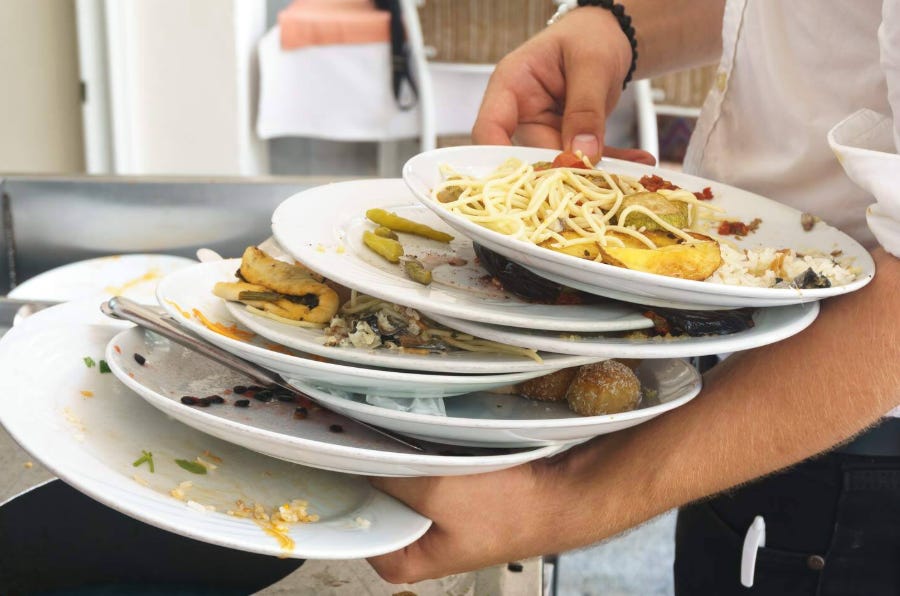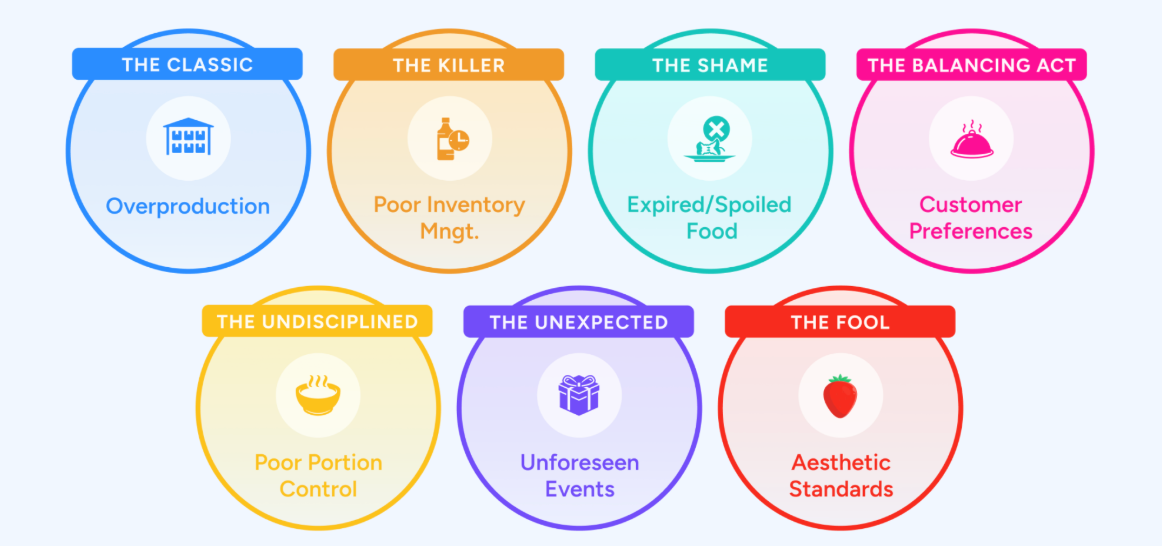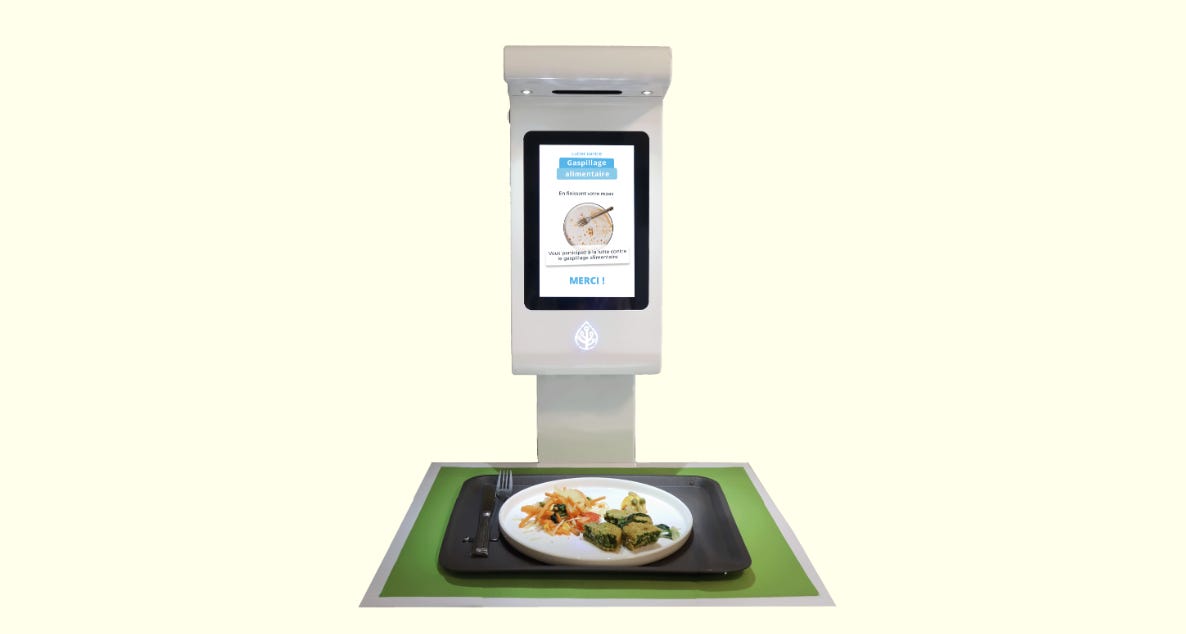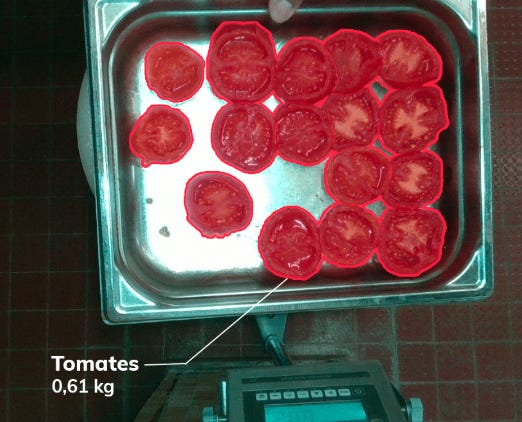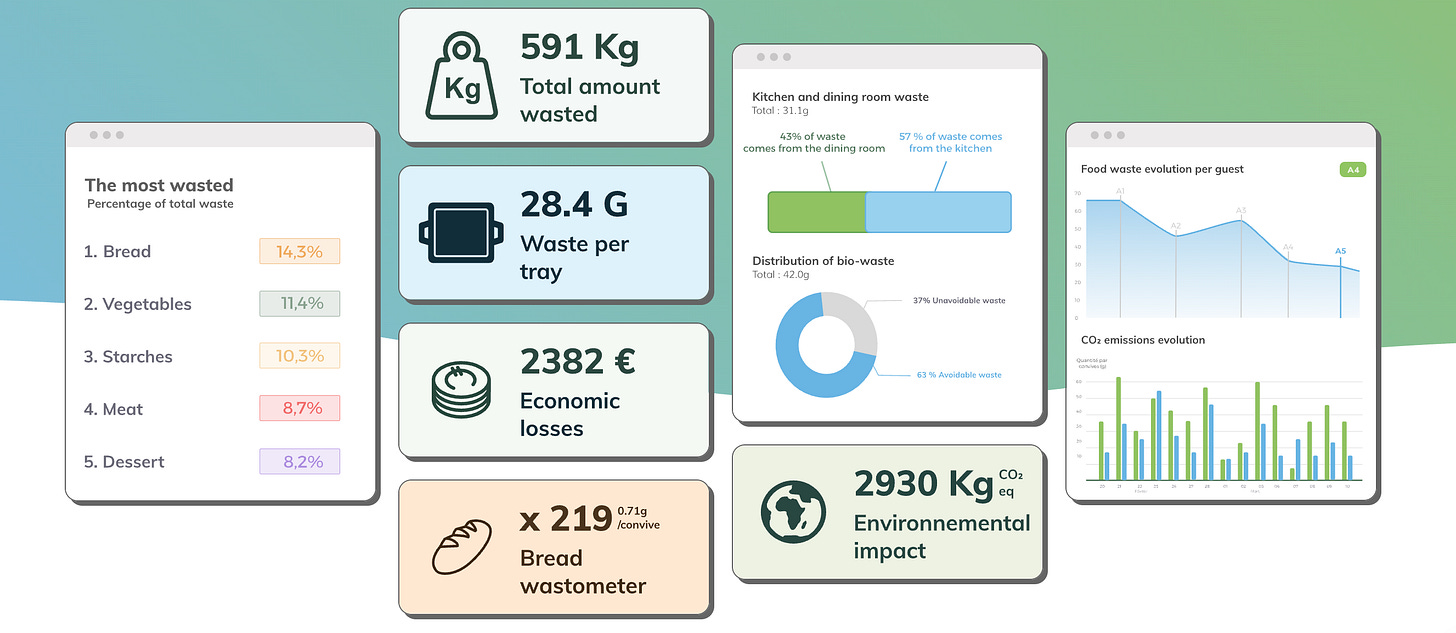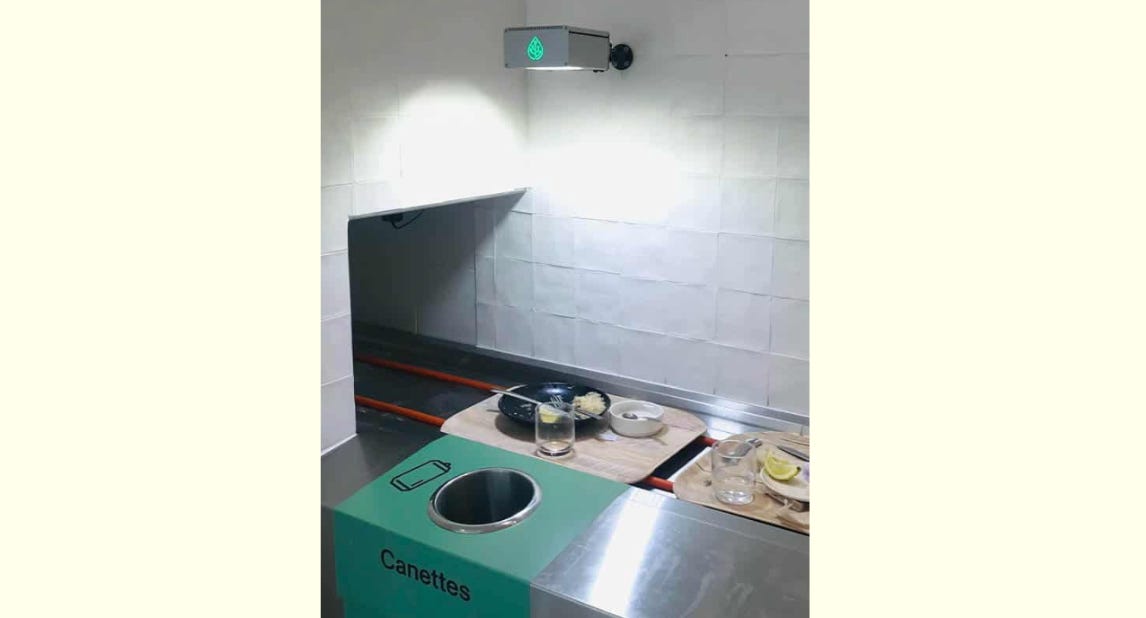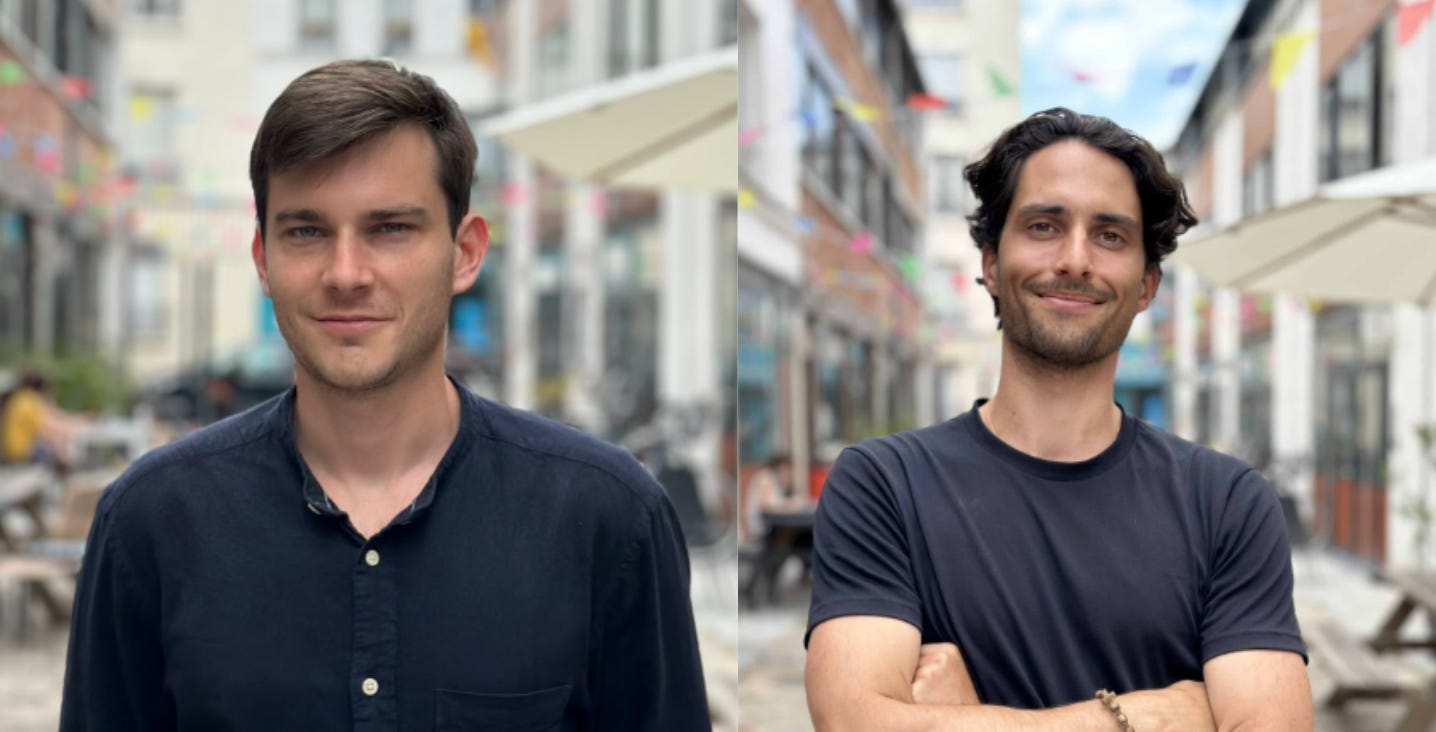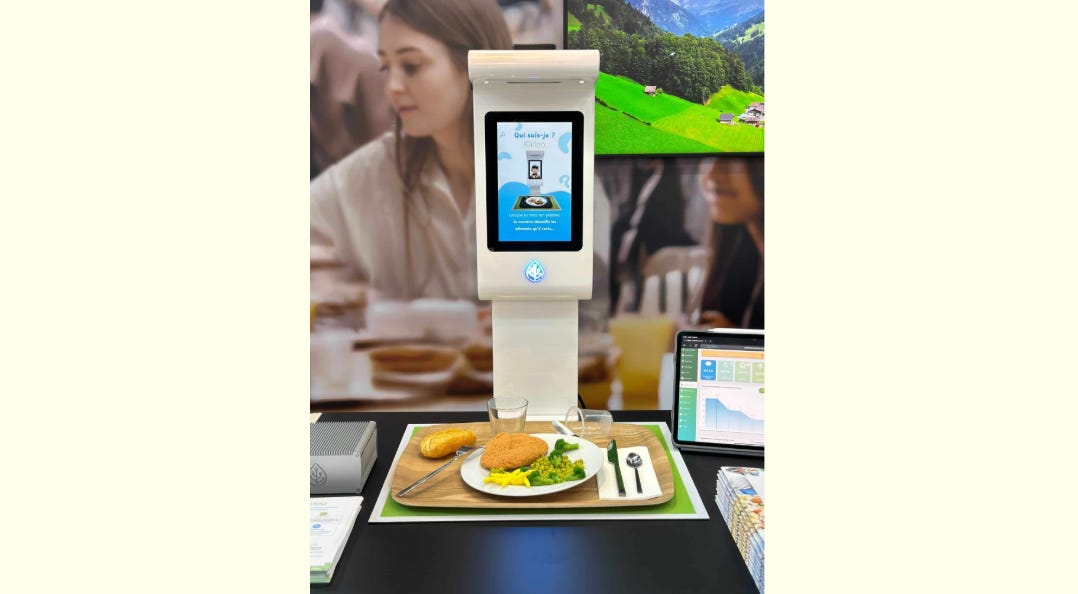#81 Kikleo
Food waste analytics
Read time: 5 minutes
Hi, I’m Javi Gascón.
This is Climate Tech Distillery, a newsletter where I talk about one specific climate tech company every week.
Today we’ll distill a company that’s using computer vision and AI to track food waste in big canteens and restaurants, helping save money and emissions: Kikleo 🇫🇷
Want to sponsor Climate Tech Distillery? Here’s all the info.
What Problem Does Kikleo Tackle?
Kikleo tackles food waste generated by restaurants and commercial kitchens (such as corporate cafeterias, schools, and hospitals), which is a major issue for both the environment and the economy.
1. Massive Scale: Food waste in these settings can be up to four times higher than in households. A single US restaurant can produce 25,000-75,000 pounds of food waste yearly. 84.5% of that goes to landfills, 14.5% is recycled/composted and 1% is donated.
2. Invisible Kitchen Losses: It’s estimated that 17% of a diner’s meal is left uneaten, and 55% of restaurant leftovers are actually edible. However, most restaurants lack the tools to properly track and analyze where their waste is coming from.
3. Waste Sources: Inventory mismanagement, poor menu choices, and oversized portions are the main ones. Without accurate data, they can’t identify which specific dishes, preparation methods, or serving sizes are causing the most waste.
4. Climate and Social Impact: Food waste is responsible for 8-10% of global greenhouse gas emissions. On top of that, millions of families worldwide can’t afford a complete meal each day. Extremely inefficient system.
5. Massive Economic Losses: Food waste costs the US restaurant industry over $162 billion yearly (far more than any other country). For every $1 invested in reducing food waste, restaurants save $14 or more in operational costs.
Product / Service 📦
Kikleo turns restaurant food waste into actionable data using AI-powered cameras. They help restaurants save money and reduce their environmental impact:
AI-Powered System: AI-powered cameras at key waste points automatically identify and quantify leftover food, calculating its cost and environmental impact (CO₂ and water). Their algorithm accurately estimates weight and volume, turning waste data into insights on efficiency and dietary trends.
Rapid Deployment: Kikleo fits seamlessly into existing workflows, no need to redesign the kitchen or tray return process. Installation take less than a week, with no disruption to restaurant operations.
Real-Time Analytics: Kikleo’s platform tracks kitchen and plate waste by dish, cost, and CO₂ impact, helping managers adjust menus, portions, and purchasing. By linking production and consumer waste, it reveals key inefficiencies and drives more sustainable, cost-effective operations.
Actionable Waste Reduction: Kikleo goes beyond measurement with a customer success team that turns data into action. They help restaurants refine recipes, adjust portions, optimize inventory, and engage staff through tailored advice and awareness materials.
Proven Impact: Customers achieve an average 20% waste reduction in year one, reaching up to 65% over time. The typical ROI is 2x with some individual locations seeing up to €50,000 in annual savings.
Market 🌐
The broader food waste management market was valued at over $34 billion globally in 2022, with the food service segment growing rapidly due to regulatory and sustainability pressures. Around 1 million establishments in the US alone could benefit from Kikleo’s solutions.
Other Key Players
Nuvilab 🇰🇷: AI-powered solutions for tracking and managing food consumption and waste in catering, healthcare, and educational institutions.
Generation Waste 🇸🇪: Offers digital tools and consulting to measure and reduce food waste in restaurants and catering services.
Orbisk 🇳🇱: AI and image recognition to track, analyze, and reduce food waste in professional kitchens through actionable insights.
Several startups tackling this problem. At the moment they all still have growth potential since there are millions of locations that could use this tech.
Founding Story 🦄
Kikleo was founded in 2019 by Martin d’Agay and Vincent Garcia as an end-of-study project at INSA Lyon, driven by their shared commitment to environmental issues and firsthand experience with food waste in university restaurants.
They started by manually sorting and weighing food waste, but quickly realized the need for automation. This led them to develop an AI-powered camera system that analyzes food scraps on trays to help restaurants measure and reduce waste.
With all restaurants closed, Covid-19 was a huge challenge, but they persevered. They launched their first pilot in Lyon in late 2021 and then expanded to restaurants, hospitals, and hotels.
They’re now present in 250+ locations in 4 different countries and keep expanding quickly. The team has grown significantly to include several industry and tech experts and they’ve raised €5 million to date.
Top Impact Stats 📈
1. 5 million meal trays analized.
2. 1000 tonnes of CO2 equivalent avoided.
3. 400K meals saved from the trash and €2 million saved for restaurant operators.
Whenever you’re ready, there are 2 ways I can help you:
Scale and optimize your climate business: I build low-code automation systems for climate companies so they can free up time to scale their revenues and their climate impact.
Give visibility to your climate company: Get your company in front of an audience of thousands of climate players and enthusiasts by sponsoring newsletter issues and LinkedIn posts.
Thanks for reading today’s issue! If you liked it feel free to hit the ❤️ button and share it with someone who might like it too. See you next Saturday:)




